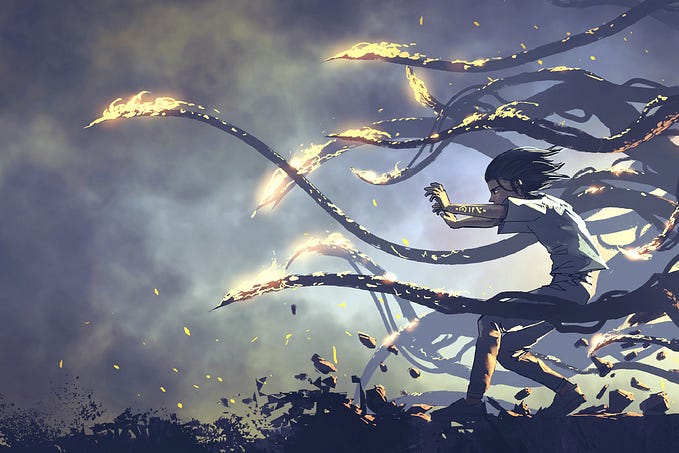Do you dream of a future in black and white or technicolor?
How extremist “parental rights” activists are fighting to indoctrinate our kids.
MAGA extremists, like the ones who started Parents Defending Education, are always telling on themselves. They are masters of projection. One of the most prominent examples is how they talk about indoctrination in schools.

Do a thought experiment with me. When I say the word: plantation, what images do you see? Did you see this?

Or this?

A schema is a mental map our brain uses to understand the world. Any time our brains encounter new information, they automatically reference preexisting ideas to categorize, label, and understand the new concept in relation to what is already known.

If I told you a story that took place during Halloween and you grew up in a country that didn’t celebrate that holiday, you would have trouble accessing what I’m talking about. The mental map or shema you have about Halloween would be missing information that would make your understanding of my story incomplete.

Let’s apply this to our collective understanding of American History or the lived experiences of Black, Native American, Latine, Arab, and Asian American people.






What you know about our country’s full, rich history and the contributions of various communities. Your understanding of the world is informed by your consumption of literature, movies, and other media. The schema or mind map you have about various historical perspectives informs your ability to understand your current reality and the experiences of others.
The quality and variety of content you consume can result in you receiving incomplete or inaccurate information. The quality and variety of perspectives you engage with can support or limit your ability to create new realities.


Good educators know that curriculum includes more than the books we read. It includes the movies and media we consume. The conversations we have. The classroom celebrations and even the posters on the wall.
Good educators consciously and intentionally expose kids to a curriculum that gives them a more diverse and accurate diet of ideas so kids’ brains can build more complex and multifaceted schemas to understand our world.

Over the past ten years, as a result of George Floyd and Breonna Taylor protests and Nicole Hannah-Jones’ publication of the 1619 project, more and more Americans saw the vital role that education has to play in helping future generations break free of limiting ideas about policing, the environment, Black history and the histories of other oppressed peoples, and the way we think about gender and relationships, and even their bodily autonomy.

Rather than trying to dictate what kids think or feel about various issues, more and more educators were sharing literature and perspectives that were not centered on just one viewpoint. They were celebrating the histories of many different types of Americans. They were validating the realities of people with different genders and sexual identities. On an even deeper level, they were honoring students’ innate right to construct their ideas about themselves and the world.
Ultimately, book bans and “anti-woke” policies are not about protecting kids but about controlling them. Taking away their right to question our society and their place within it.

Conservative activists are telling on themselves when they scream about indoctrination. As masters of projection, these parents fear they are losing the power to indoctrinate kids, so they call diverse reading lists divisive because they challenge rigid and frankly bigoted tropes that center only one viewpoint, theirs.
No wonder they keep complaining that “woke” ideology prevents “back to basics” education. For them, the world is flat. And the sun revolves around the Earth. And they like it like that.

It makes sense that many of these “parents’ rights” proponents are also MAGA extremists. They want to return to a time when our schools didn’t have to educate everyone. When we told stories in Black and white and not in Technicolor.

It makes sense that many of these “parents’ rights” proponents are also MAGA extremists. They want to return to a time when our schools didn’t have to educate everyone. When we told stories in Black and white and not in Technicolor.

And not just their kids; it’s mine and yours. They want us to distrust teachers who ask open-ended questions that spur children to think for themselves.

Moms for Liberty, Parents Defending Education, and other “parents’ rights” activists want back-to-basics education because they want to control what our kids think. And they want it to be BASIC.

They are threatened by the concept of academic freedom because they don’t want anyone teaching THEIR kids or ANY kids to know that the world doesn’t revolve around just one viewpoint. There are many valuable perspectives. They are threatened by the idea that their children, and all our children, might learn new ideas and think for themselves.

Right now, we are fighting for our children’s right to know our country’s full collective history. To read authors who reflect their experiences and to consider experiences other than their own. For the right to ask questions and claim their own identities. To be free.









